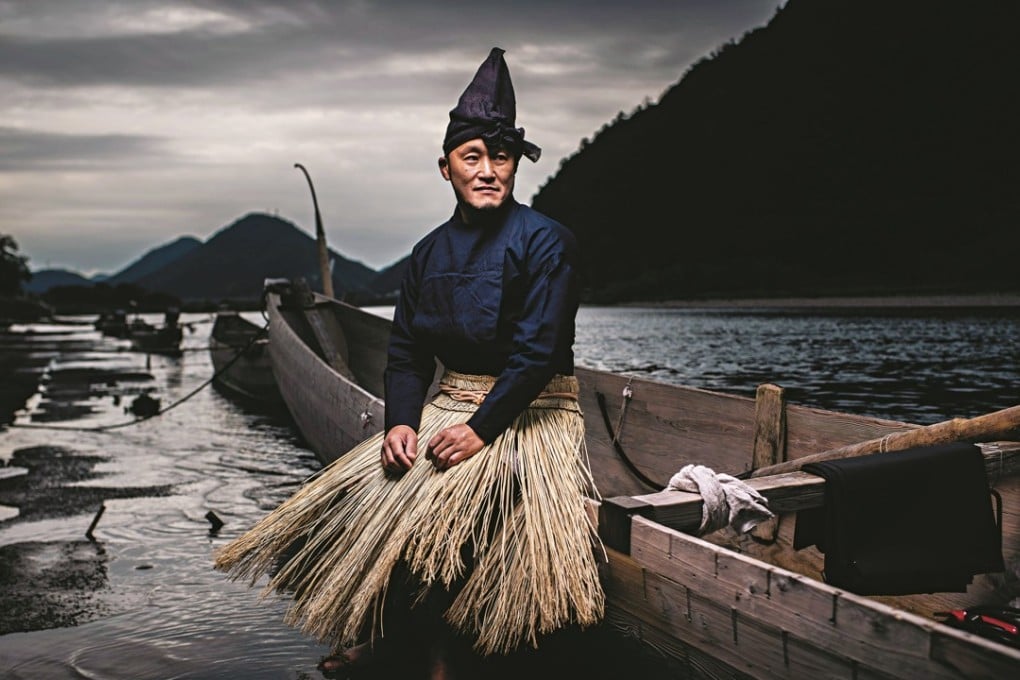Japanese cormorant fishermen keep alive tradition that belongs to another age
- The birds are roped together and the fishermen tie string around each one’s throat to stop them eating the fish they catch
- The practice has been in gradual decline for centuries

In the pitch black night, fires burn alongside a river in the city of Gifu in Japan as a handful of men prepare for a ritual that dates back more than 1,300 years: fishing with cormorants.
Dressed in traditional clothes, they look like they come from another time. They wield their cormorants, tied together with strings, like puppeteers.
Their profession, known as ukai, was once common in waterside villages and towns throughout Japan and in other parts of the world, including southern China.
It has been in gradual decline for centuries, though, and now lives on in Japan as a tourist attraction and a carefully protected part of the country’s national heritage.
At 46, Shuji Sugiyama is the youngest of the cormorant fishermen in Gifu, in western Japan. And he is one of just nine people to hold an imperial licence to practice the art. He sits quietly on a rock by the inky waters of the Nagara River, apparently undisturbed by the chatter of his fellow fishermen.
